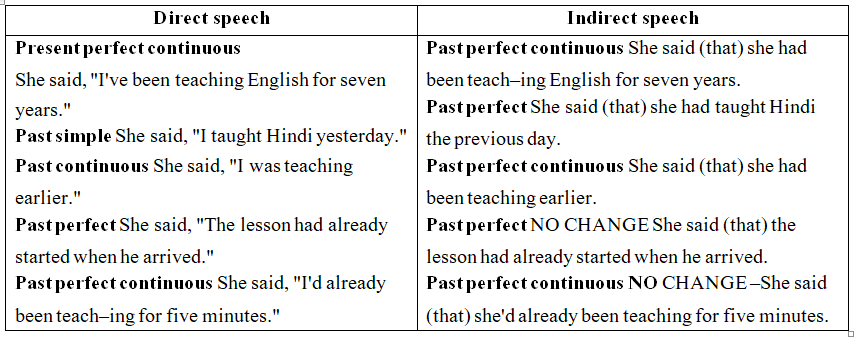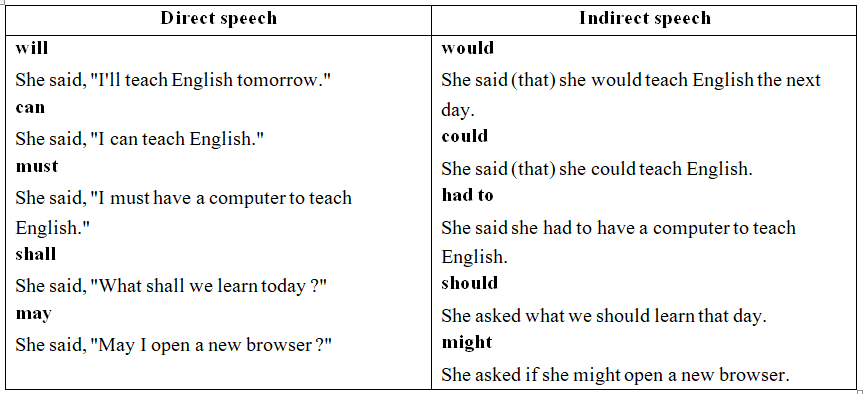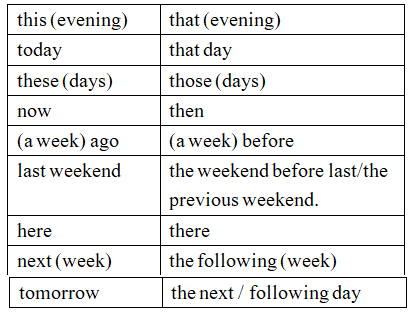Bihar Board Class 8 English Part III Chapter 6. Tess Buys a Miracle Text Book Questions and Answers
6. Tess Buys a Miracle
TEXTBOOK QUESTIONS AND THEIR ANSWERS
B. LET’S COMPREHEND :
B.1. THINK AND TELL :
Q. 1. Who was sick?
Ans. Andrew, Tess’s brother, was sick.
Q. 2. How did Tess know that her brother was sick?
Ans. Tess overheard her parents talking about her brother’s sickness.
Q. 3. Who operated on her brother?
Ans. Dr. Carlton Armstrong operated on her brother.
4. Which words in you opinion, describe the character of Tess?
Ans. “He’s really sick ……… my own money.”
B.1.1. Say whether the following statements are ‘True’ or ‘False’.
1. Tess’s parents were very hopeful that their son would recover from his illness.
2. Tess believed that miracles are things that one can buy.
3. Tess didn’t want to use her own money to buy a miracle to save her brother.
4. Tess’s brother needed a surgical operation.
5. The chemist’s brother wanted to help Tess.
6. Dr. Armstrong made Tess believe that it was possible for her to buy the miracle she needed.
7. Tess’s parents had to spend a lot of money on Andrew’s operation. .
8. Dr. Armstrong was not a kind and sympathetic man.
9. Tess’s parents saved Andrew’s life.
Ans. 1. False, 2. True, 3. False, 4. True, 5. True, 6. True, 7. False, 8. False, 9. False.
B.2. THINK AND WRITE :
Tick () the right answer.
1. Tess went to the drugstore
(a) to buy a miracle
(b) to meet the chemist
(c) to meet the chemist’s brother
2. The doctor was impressed by
(a) Tess’s concern for her brother
(b) Tess’s way of speaking
(c) Tess’s love for her parents
3. Only a miracle could save Andrew’s life because
(a) the disease was incurable
(b) his parents hadn’t enough money to bear the cost of his treatment
(c) there were no good doctors available at that place
Ans. 1. (a), 2. (a), 3. (b).
B.2.1. Answer the following questions :
Q. 1. How much money did Tess have? How do you think she got this money?
Ans. Tess had 1 dollar and 11 cents. She got this money from her savings bank in the house.
Q. 2. Did Tess know what a miracle is ? Give reasons for your answer.
Ans. No. Tess did not know what a miracle was. Because, she wanted to know the cost of a miracle.
Q. 3. What is your opinion about Dr. Armstrong ?
Ans. Dr. Armstrong was a famous surgeon. He was very attentive and responsible to his duty. He was ready to help needy persons.
Q. 4. How did Tess come to know that her brother was sick?
Ans. Tess overheard her parents talking about her brother’s sickness.
Q. 5. What did Tess want to know from the chemist ?
Ans. Tess wanted to know the cost of a miracle from the chemist.
Q. 6. Who, in your opinion, helped Andrew recover from his illness?
Ans. Dr. Carlton Armstrong helped Andrew recover from his illness.
C. WORD STUDY:
C.1. Fill in the blanks with the suitable words from the box.
![]()
1. Within a few weeks Andrew was ……… at home.
2. My brother has just arrived from ……….
3. Dr. Armstrong ……….. on her brother.
4. Tess made her way to ……….
5. Only a ………. can save him.
6. There were few……… in the jar.
Ans. 1. back, 2. Chicago, 3. operated, 4. drugstore, 5. miracle, 6. coins.
C.2. Words ending in ‘-ist’
Words that end in ‘-ist’ such as guitarist, artist and receptionist indicate people’s profession or their specialised area of work.
Study the words in column A indicating professions and match them with what they do given in column B.
A B
1. Dentist (a) a person who grows or sells flowers
2. Physicist (b) a person who is qualified to treat people’s teeth.
3. Florist (c) a person who studies science.
4. Scientist (d) a person who studies physics.
5. Biologist (e) a person who prepares and sells medicines.
6. Chemist (f) a person who studies different types of food and advises people on what they should eat in order to say healthy and fit.
7. Economist (g) a person who carries out a scientific study of the life and structure of plants and animals.
8. Nutritionist (h) a person who studies economics, a field which deals with how a society organises its money, trade, industry and other resources.
Ans. 1.—(b), 2.—(d), 3.—(a), 4.—(c). 5.—(g), 6.—(e), 7.—(h), 8.—(f).
C.3. Given below are groups of words. Identify and encircle in each group the word that does not belong to the rest. One has been done for you.
1. disease, doctor, treatment, (confident.) diagnosis.
2. medicine, cupboard, table, chair, stool
3. annoyed, irritated, loving angry, cross
4. wife, husband, daughter, son, friend.
5. well-dressed, smart, elegant, unkempt, well–known
Ans. 2. medicine, 3. cross, 4. friend, 5. unkempt.
D. GRAMMAR :
Direct and Indirect Speech
You can speak or write the words or sentences of another person in two ways:
(a) By repeating the words or sentences of the other person as they were.
(b) By stating the meaning of the words or sentences of the other person in your own words.
Suppose Amrita speaks the words, “I am tired.” Any person other than Amrita can express her words in the following ways:
(a) Amrita said, “I am tired.”
OR
(b) Amrita said that she was tired.
In sentence (a), the exact words of the speaker, that is, “I am tired.” are quoted within the quotation marks. This is called the direct speech.
In sentence (b), we have reported what Amrita (the speaker) said, that is, she was tired without quoting the exact words. This is called the indirect speech.
Here, you will also observe the following facts.
* The first sentence gives Amrita’s words as they were spoken by her. So they have been kept within double inverted commas or quotation marks.
* The second sentence uses the relative word that in order to connect Amrita’s words with those of the reporting person.
We use reported speech when we want to repeat what someone had previously said.
Let’s look at the difference between direct speech and reported speech:
Direct–Paras said = ‘I am tired’.
Reported Speech–Paras said (that) he was tired.’
Indirect speech (sometimes called reported speech), doesn’t use quotation marks to enclose what the person said and it doesn’t have to be word for word.
When reporting speech, the tense usually changes. This is because when we use reported speech, we are usually taking about a time in the past (because obviously the person who spoke originally spoke in the past). The verbs therefore usually have to be in the past too. In reported speech, we need to use the past tense form of the verb. In direct speech the present tense is used. As you can see, in the above sentence ‘am’ changes to ‘was’ when we use reported speech.



Note: There is no change to could, would, should, might and ought to. You can use the present tense in the reported speech if you want to say that something is still true. For example, my name has always been and will always be Aniket so:

You can also use the present tense if you are talking about a future event.

Time Change:
If the reported sentence contains an expression of time, you must change it to fit in with the time of reporting. For example, we need to change words like here and yesterday if they have different meanings at the time and place of reporting.

Expressions of time if reported on a different day:

In addition, if you report something that someone said in a different place to where you heard it you must change the place (here) to the place (there).
“How long have you worked here ?”
She asked me how long I’d worked there.
Pronoun change
In the reported speech, the pronoun often changes;
* Pronouns of the first person change according to the person of the subject of the reporting verb.
* Pronouns of the second person change according to the person of the object of the reporting verb.
* Pronouns of the third person never change.
He said, “I am a teacher”.
= He said (that) he was a teacher.
She said to me, “Where are you going?”
= She asked me where I was going.
He said to you, “Are you a student?”
= He asked you if you were a student.
They said to me. “He must help her.”
= They told me that he must help her.
Reporting Verbs:
1. Said, told and asked are the most common verbs used in indirect speech.
2. We use asked to report questions: I asked Anil what time the lesson started.
3. We use told with an object: Anil told me he felt tired.
4. We usually use said without an object: Anwesha said she was going to teach English.
5. If said is used with an object we must include to: Anwesha said to me that she had never been to Patna.
Note: We usually use told: Anwesha told me that she had never been to Patna.
There are many other verbs we can use apart from said, told and asked. These include:
accused, admitted, advised, alleged, agreed, apologised, begged, boasted, complained, denied, explained, implied, invited, offered, ordered, promised, replied, suggested and thought.
Using them properly can make what you say much more interesting and informative.
He asked me to come to the party may be changed into :
He invited me to the party.
He begged me to come to the party.
He ordered me to come to the party.
He advised me to come to the party.
He suggested I should come to the party.
D.1. Rewrite the following sentences into indirect speech:
Father said, “Only a miracle can save him now.”
1. “My brother is really sick”, said Tess.
2. Mother said to her husband, “I wonder how much Andrew’s surger cost.”
3. The chemist said to Tess, “What do you want? I am talking to m brother who was just come from Chicago”.
4. The chemist’s brother said to Tess, “What kind of miracle does you brother need ?”
5. “How much do you have ?” asked the well-dressed man.
6. She said to me. “How is your brother now ?”
7. He said to her, “What do you want ?”
8. Tess replied, “He is really sick and he needs an operation”.
Ans.
1. Father said that only a miracle could save him then.
2. Tess said that her brother was really sick.
3. Mother told her husband that she wondered how much Andrew surgery cost.
4. The chemist asked Tess what did she wanted and informed her th he was talking to his brother who had just came from Chicago.
5. The chemist’s brother asked Tess what kind of miracle did h brother need.
6. The well–dressed man asked how much she had.
7. She told me how my brother was then.
8. He asked her what she wanted.
9. Tess replied that he was really sick and he needed an operation
D.2. Report the following in direct speech.
1. The shopkeeper asked me what I wanted.
2. I requested my brother to help me in Chemistry.
3. The old woman told us that she could not see clearly.
4. They say that they are very thirsty.
5. She will say that the letter is to come tomorrow.
6. He says that we will reach there early morning.
7. She said that she had been learning Hindi for about two years.
8. Ayesha said that she would leave for her village the following day.
9. Anil said that he had not seen her for a long time.
Ans.
1. The shopkeeper said to me, “What do you want ?”
2. I said to my brother, “Please help me in chemistry.”
3. The old woman said to us, “She cannot see clearly.”.
4. They say, “They are very thirsty.”
5. She will say, “The letter is to come tomorrow.”
6. He says: “We will reach there early morning.”
7. She said, “She has been learning Hindi for about two years.”
8. Ayesha said, “She will leave for her village tomorrow.”
9. Anil said, “He has not seen her for a long time.”
LET’S TALK:
The teacher will assign some students the role of a doctor and rest of them to enact the role of a patient. He/she will give them certain situations like having fever, having stomach upset, having an injury etc. The students will role play as doctor and patient.
Hints : (To be done with the help of teacher.)
F. COMPOSITION:
On the basis of the discussion on E. Let’s Talk, write a dialogue between a doctor and a patient.
Ans. (Sudhir goes to a doctor, for he is ruming fever for three days)
Doctor : Come boy. What do you want?
Sudhir : I am ruming fever for three days.
Doctor : Well, let me check up the cause.
Sudhir : Yes, doctor.
Doctor : What is your name?
Sudhir : Sudhir Kumar.
Doctor : What is your age?
Sudhir : 13 years.
Doctor : Get your blood and urine tested form a pathological lab and come tomorrow.
Sudhir : Yes, doctor, I will follow your advice. (Next day he again goes to the doctor with his pathological report.
Doctor : Well, come Sudhir. Let me see your check up report. (Sudhir gives him the same) well, all things are normal. It is the seasonal effect only. Take these medicine for three days and then come again.
Sudhir : Can I attend my school, doctor?
Doctor : No, for three days take bed rest.
G. TRANSLATION:
Q. Translate the first three paragraphs into Hindi or your mother tongue.
Hint: See the Hindi of the paragraphs on page 57.
SOME OTHER IMPORTANT QUESTIONS WITH ANSWERS
Q. 1. Who was Tess ?
Ans. Tess was a little girl.
Q. 2. Why did Tess expend her money for Andrew ?
Ans. Andrew was Tess’s brother. He was suffering from illness. Her father had no money for his treatment. Tess was a simple girl, so she felt desire to expend her money for the treatment of her brother.
Q. 3. What did Tess know about miracle ?
Ans. Tess was a simple little girl. She thought that miracle is some kind of medicine which cast much, for which her father had no money.
Q. 4. Who was Carlton Armstrong ?
Ans. Carlton Armstrong was a neurosurgeon.
Q. 5. What was the disease of Andrew ?
Ans. Andrew had perhaps some tumor growing in his head.
Q. 6. What was the cure of Andrew ?
Ans. Andrew needed to be operated on for his treatment or cure.
Read more – Click here
YouTube Video – Click here
Leave a Reply